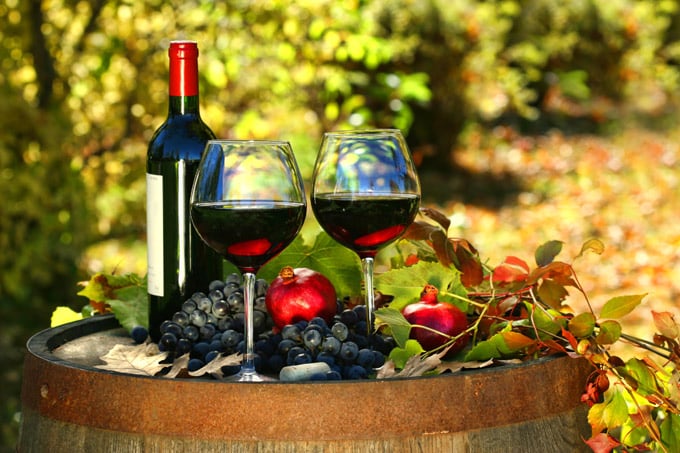
Discover Why Drinking A Glass Of Wine Before Bed Can Help Weight Loss
Have you been regrettably avoiding wine for fear that it will make you gain weight? If so, then you will thoroughly enjoy what I am about to share. Although it has long been believed that alcohol intake leads to weight gain, new evidence suggests that your “nightcap” may actually help prevent weight gain.
Too good to be true?
I can happily say, it doesn’t appear so.
Here are some highlights from the article, How wine can help you lose weight: It defies conventional wisdom but some women insist a nightly glass of red keeps them slim and experts now say they may be right, posted by the Daily Mail.
Read the full article here:
http://www.dailymail.co.uk/femail/article-3075931/How-wine-help-lose-weight-defies-conventional-wisdom-women-insist-nightly-glass-red-keeps-slim-experts-say-right.html.
According to Linda Monk, who has lost over 6 pounds in the last three weeks,
“The wine curbs my sugar cravings,” she says. “My long-held desire to snack on sweets, biscuits and chocolate after my dinner has disappeared and the relaxing effect of the alcohol makes me feel that, despite cutting back, I’m not being hard done by.”
Other research also suggests that wine may encourage weight loss. For instance:
“A 13-year Harvard University study of 20,000 women found that those who drank half a bottle of wine a day had a 70 percent reduced risk of obesity compared to non-drinkers. And the U.S. government’s official alcohol body, the National Institute for Alcohol Abuse and Alcoholism concluded that ‘when alcohol is substituted for carbohydrates, calorie for calorie, subjects tend to lose weight, indicating that they derive less energy from alcohol than from food.’ ”
There are also other documented health benefits of nightly wine consumption…
“Another study, presented at the European Conference on Obesity in Prague last week, found that a glass of red wine every night increased the levels of the ‘good’ cholesterol HDL.”
According to Tony Edwards who spent months in the Royal Society of Medicine’s library in London researching thousands of medical studies regarding the effects of alcohol on health and weight:
“…in highly controlled laboratory tests, if alcohol calories are substituted for food calories, subjects lose weight. In theory, calories are interchangeable: there’s no difference between an alcohol calorie and a food calorie. But here were top-notch scientists demonstrating this was nonsense.
Alcohol produces zero glucose, explaining its lack of effect on weight. And though wine has other ingredients (fermented grape juice), these score very low on the Glycemic Index, explaining why it isn’t fattening.
Other good news for wine lovers is that in laboratory tests, wine-drinking rats have been found to gain less weight than water-drinking rats on identical food intakes because wine has the miraculous property of reducing the size of fat cells. Constituents of wine such as ellagic acid and piceatannol may be responsible, but that’s still only a theory.”
A second theory as to why this occurs…
“…the process of digesting the drink triggers the body to burn calories, particularly in women, who make a smaller amount of the enzyme that metabolises alcohol than men.”
While this is all good news, Edwards did discover one major link between alcohol and weight gain..
“Alcohol is a powerful appetite stimulant, so the more you drink, the more you are tempted to eat.”
Edwards concludes…
“The clinical evidence from studies on animals and human beings is crystal clear that alcohol calories have no effect on weight. So, putting calorie values on alcohol labels will do nothing to stem the nation’s growing obesity epidemic.”
My take on this:
Although I haven’t tested this theory personally, I am not a huge advocate of drinking regularly. A glass of organic red wine a few times a week may be a nice way to unwind and let go for certain people, but I think there are definitely others who are better off without it.
Even though organic red wine does provide certain health benefits, I believe most of its benefits are the result of relaxation. Due to our overly stressed lifestyles, devoting time to relaxation and pleasure can dramatically improve health. Therefore, if wine helps you relax and “let go,” it may be doing more good than harm.
On the other hand, if you’re someone who can relax without wine, it may be better to use other stress-reduction strategies such as deep breathing, exercise, meditation, yoga, and massage. This is also true for those who can’t realistically “drink just one.” Four drinks have a very different metabolic effect than one. It usually leads to increased, poor quality food consumption.
There are no hard and fast rules to perfect health. If wine is something you love, think about its benefits as you enjoy a glass every once in a while. Choose organic versions. If wine is something you can live without, then avoid it. Whatever you do, remember that there are many paths to optimal health, some of which may include an organic “nightcap wine” once in a while…
Here’s to the benefits of organic red wine-- in moderation!






